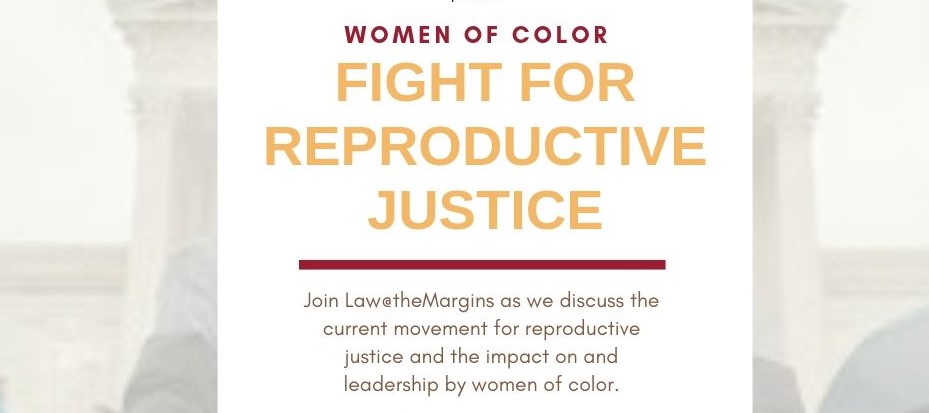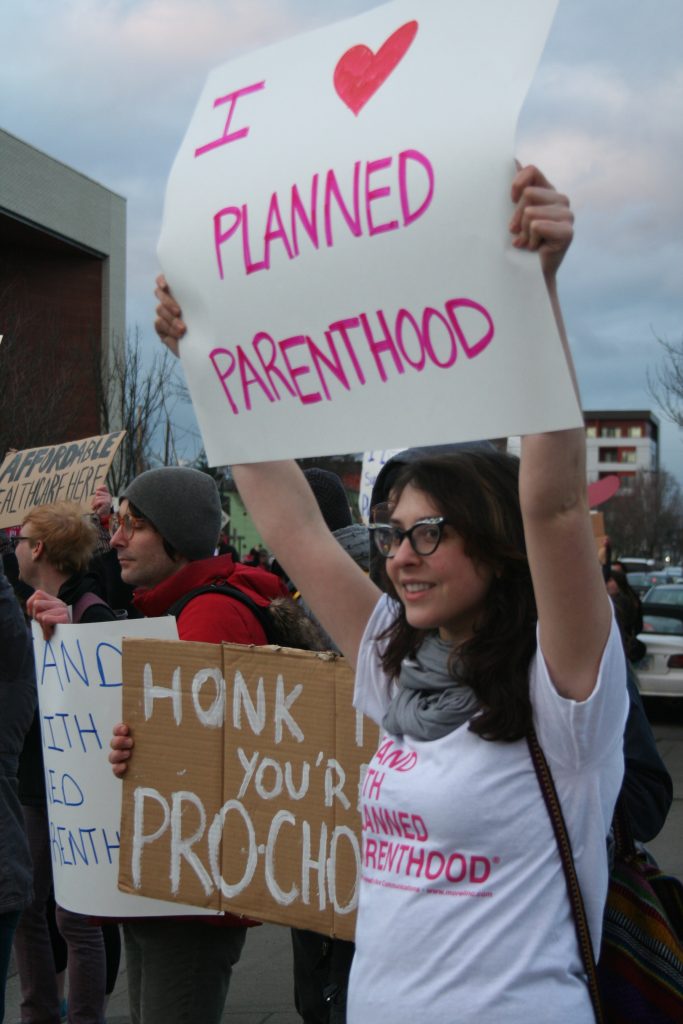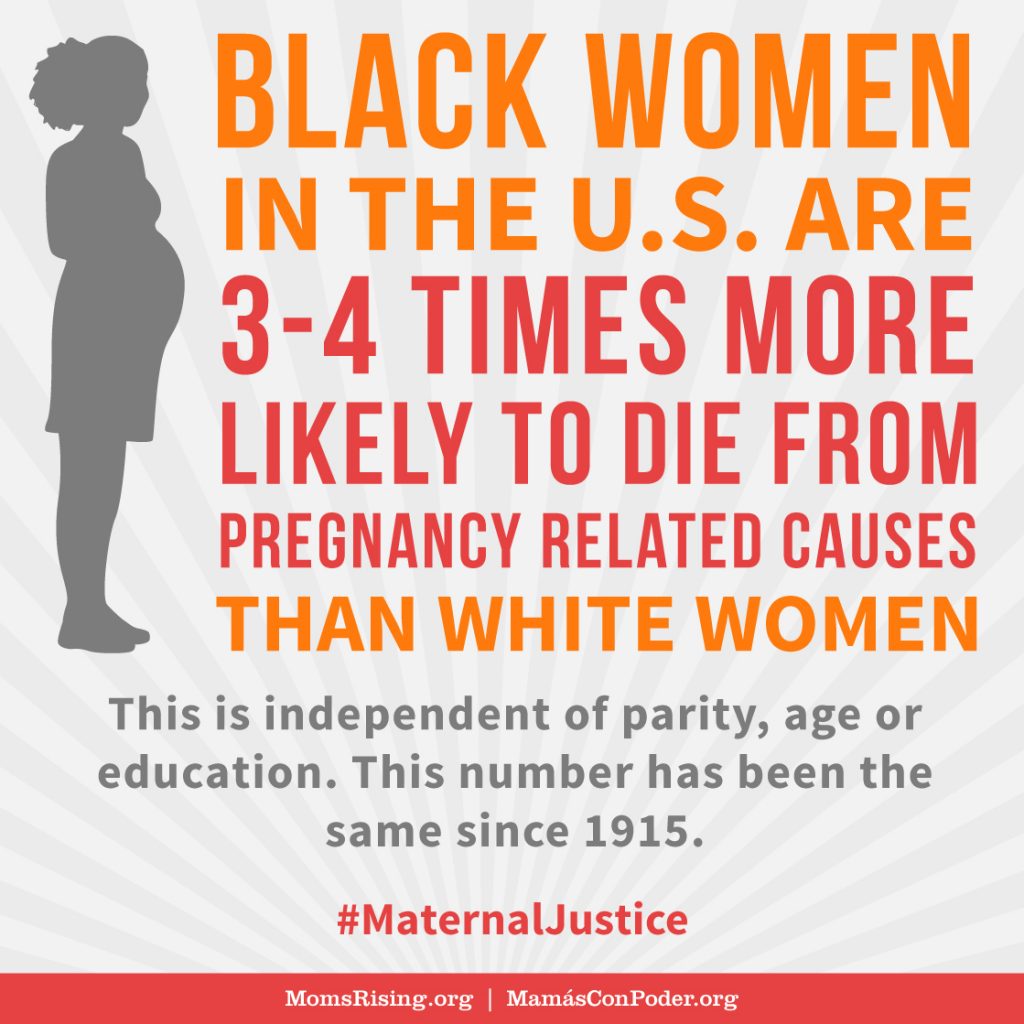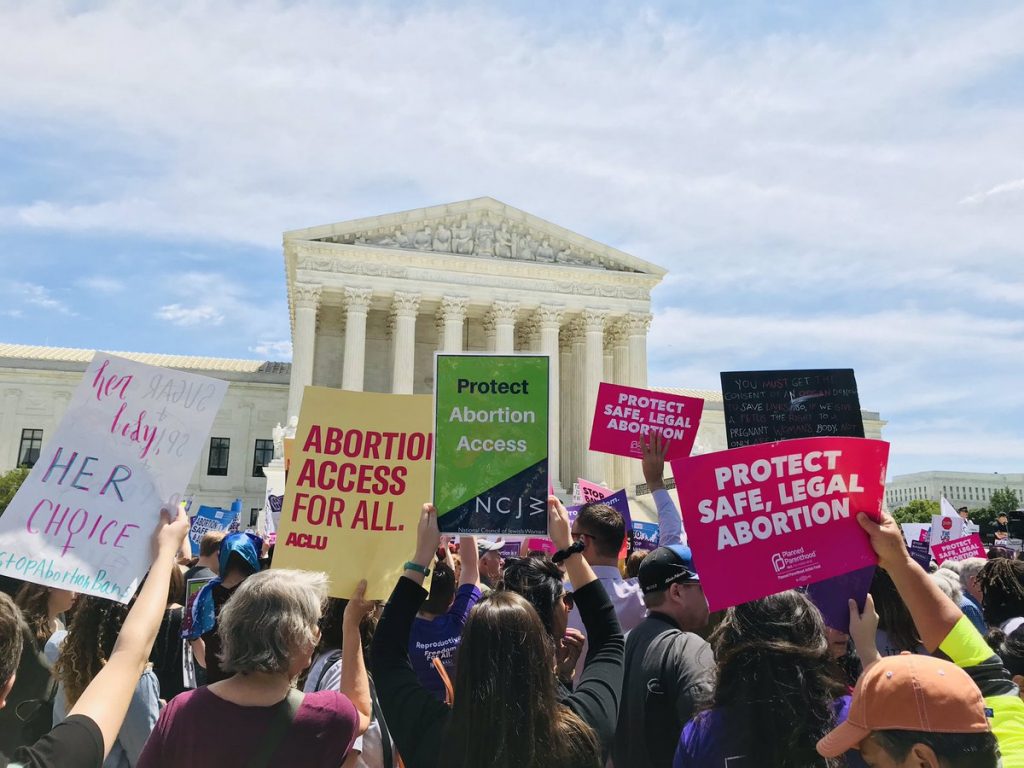On Friday June 21, Law at the Margins hosted “Fight for Reproductive Justice” Webinar in partnership with NAPAWF and In Our Own Voice. The webinar may be found at https://www.crowdcast.io/e/0621fight4reproductiverights. Roula AbiSamra, Georgia organizer for NAPAWF, and Natasha Chabria, Georgetown Women’s Law and Public Policy Fellow at In Our Own Voice, joined us in a discussion about reproductive justice and the implications of increased attacks on reproductive rights, healthcare access and resources. Information about both NAPAWF and In Our Own Voice may be found on our resource page. Below are some key points from the webinar.

Defining Reproductive Justice
Reproductive justice includes more than just abortion. It includes things that impact the ability to access reproductive services, including child care, paid family leave, transportation, housing, poverty subsidies, comprehensive sexuality education and insurance. Policy solutions to protecting the reproductive rights of folks must take into account people’s lived realities where access to many of these basic needs is not possible.
In light of the humanitarian crisis and deprivation of human rights at the border, Reproductive Justice includes understanding that separation of children from families and detention of refugees, together or separate, is a violation of reproductive and human rights. Particularly, the remove of Temporary Protected Status for certain groups and transnational adoptees who are threatened with or have had their status revoked. NAPAWF worked to dismantle misconceptions and prejudices prior to the most recent anti-immigrant and xenophobic policies set out by the Trump administration.
This is why women of color organizations use a Reproductive Justice framework. Roula, NAPAWF’s Georgia organizer, describes NAPAWF as an intersectional and reproductive justice organization that focuses on reproductive health, reproductive rights, economic justice and immigrant rights.

Reproductive Justice framework is rooted in the human right to control our bodies, our sexuality, our gender and our reproduction. It will be achieved when all people, of all statuses, have the economic, social and political power and resources to define and make decisions about our bodies, health, sexuality, families, and communities in all areas of our lives with dignity and self-determination. This framework is holistic and focuses on the ability of folks to live their lives in a way that allows them to be healthy and productive. Generally, reproductive health is service provider focused, including clinics, providers to give access to abortion care and services found at centers like Planned Parenthood. Reproductive rights include the legal right to abortion and contraception, focusing on choice, and typically involves lawyers and policy makers. Organizations that work to promote reproductive justice work to create a culture shift by focusing on all the identities that influence a person’s ability to make decisions for and about themselves, including how and if to parent in a way that is best for them and their families. People “may have the legal right to abortion,” Natasha says, “but many have limitations in accessing those services to achieve that right.”
If you really want to end discrimination against women and girls, you would end discrimination against women and girls, not try to restrict other people’s reproductive choices.
Sex Selective Abortions
Notably, Roula talks about the idea of “sex selective abortion bans” and prenatal nondiscrimination acts that make aborting because of race or sex illegal. The idea behind sex selective abortion bans is the ideal that the same people who misunderstand abortion claim that some people may have an abortion based on the sex of the fetus. So called “son preference” is claimed to be discriminatory towards female fetuses. However, there is no evidence that sex selective abortions occur in the United States. Roula explains: “This is based on stereotypes about Asian Americans and Asian American immigrants and folks in other countries, like China’s “One Child” Policy. The bans, she says, are based on racist preconceptions and prejudices. At the root, she says, is controlling people’s fertility in the first place. “It doesn’t make sense to implement policies to take away rights and place immigrants under scrutiny because of something happening in another country. If you really want to end discrimination against women and girls, you would end discrimination against women and girls, not try to restrict other people’s reproductive choices.”

Barriers to Accessing Reproductive Services
Many attacks on access to reproductive health services and abortion care are not direct attacks. Many, like The Hyde Amendment, attack access to services by limiting or prohibiting the amount of federal funding allotted to certain services. The Hyde Amendment shows up time and time again as just this: a barrier to accessing reproductive services. The Amendment is a funding mechanism that prevents federal funds from being used to fund abortions. This limitation severely impacts folks who are more likely to rely on federal insurance as opposed to private or employer based insurance, as private insurance may utilize funding segregation to use private premium costs to cover abortion. “For individuals on Medicaid and the Affordable Care Act, those people already have limited access to the means needed to survive, so they likely cannot afford to pay for an abortion out of pocket. As a result, they are forced into situations simply because of prohibitions on the use of federal funds.”
Similarly, Title X is a program through which the government provides federal funds to health care providers. Title X is the only federal grant program dedicated solely to providing individuals with comprehensive family planning and related preventive health services. Trump finalized a rule that would prohibit providers who receive Title X funding from providing or counseling their patients on abortion services and the full range of reproductive options. On July 11th, a federal court refused to block Trump’s rule. Many states also have state-wide laws allowing, some even demanding, crisis pregnancy centers and other reproductive health providers to misinform their patients about dangerous and unproven medical procedures such as “abortion reversal.”
The federal government has also begun stripping away Obama-era anti-discrimination protections. Section 1557 requires that any program receiving funds under the ACA cannot discriminate against individuals. Specifically, under President Obama, specific guidance was released stating that nondiscrimination clauses extended to transfolks, individuals who had abortions or miscarriages, and senior citizens amongst others. The Trump administration released a rule scaling back these protections, allowing providers to discriminate against individuals, resulting in, as Natasha states, the “intersectional targeting of identities.”

Legislative Solutions
Natasha and Roula both mentioned a promising legislative solution to barriers currently faced by immigrant and undocumented communities. Health Equity and Accountability for Immigrant Women and Children seeks to dismantle the current legal structure that places a five year bar on immigrants’ ability to access federal services and insurance. As the law currently stands, immigrants cannot access insurance through Medicaid or privately purchased insurance such as through the ACA. Roula reiterates the need to realize that health care is a human right. She says that the determination threshold of whether these rights are accessible is: “do we have the ability to decide and enact those decisions in our lives? There is no better person to make these decisions than we ourselves.”
The Way Forward
Roula and Natasha discussed the importance of continuing to push energy behind pro-choice movements, politicians and community leaders. Moving power includes ensuring that the political power lies in the community and not solely in the hands of elected officials. Roula and Natasha both emphasized the importance of reminding our officials that their constituents’ interests, those that elected them to office, are the ones that should be promoted. Fighting to ensure that all individuals have robust and affirming access to reproductive health care is a fight that begins with the community and should be affirmed by elected officials.




